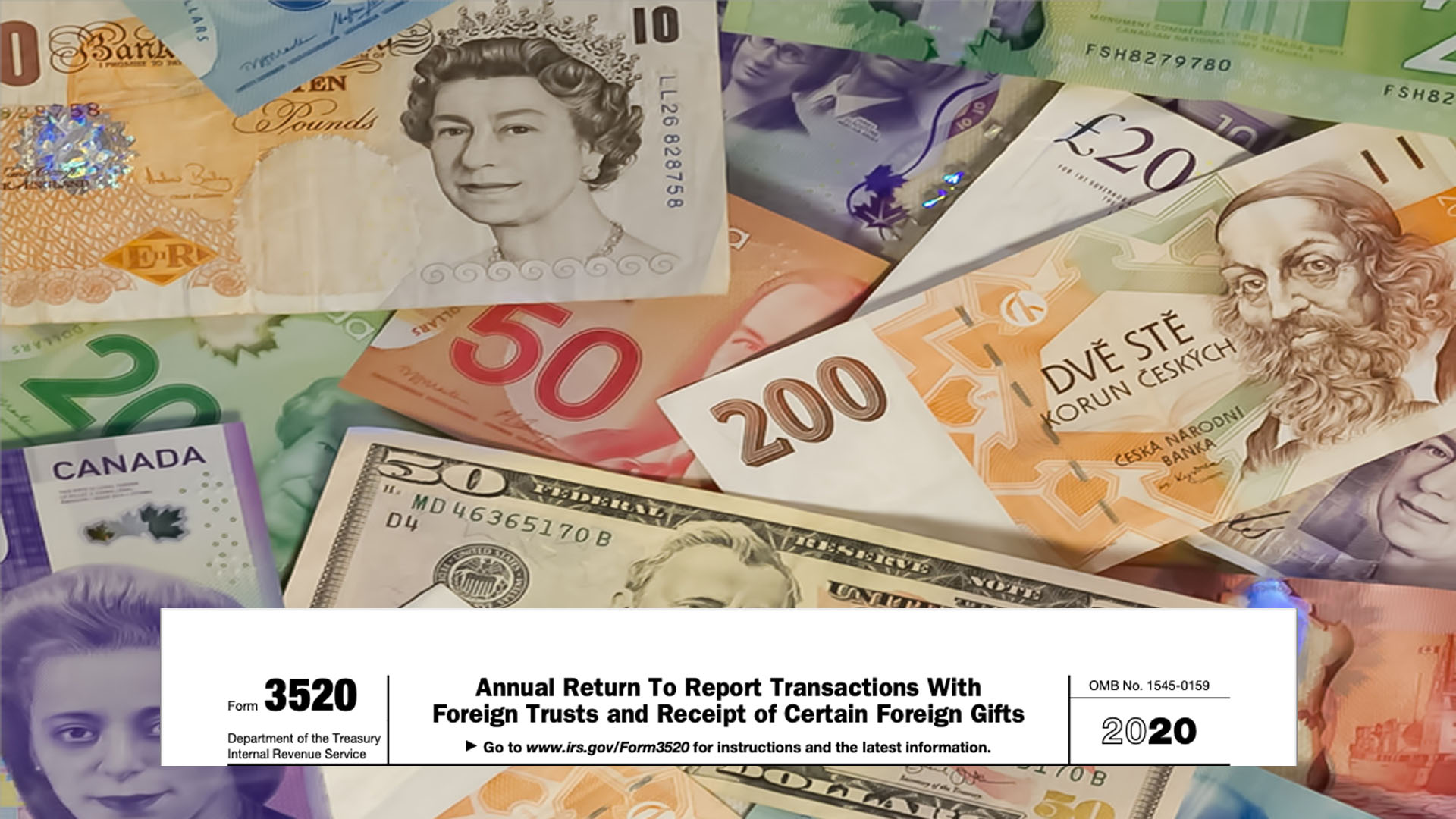Comprehending the Sorts Of International Presents: How to Properly Report Them
Comprehending foreign presents is vital for organizations passing through complex reporting needs (report a foreign gift). These presents can differ considerably, coming under non-monetary and monetary groups. Each type provides unique challenges in evaluation and compliance. Organizations needs to understand the legal and moral effects involved. Efficient administration and reporting demand clear standards and regular training. The question stays: just how can organizations assure they satisfy these commitments while maintaining openness and accountability?
Meaning and Review of Foreign Presents
Foreign gifts are products or benefits obtained from foreign entities, which can consist of people, federal governments, or companies. These gifts might take numerous forms, including substantial items, services, or other forms useful that hold value. The relevance of foreign gifts often lies in their potential to affect relationships in between companies, individuals, or countries. They can be a means of diplomacy, showing goodwill or fostering collaboration. Nevertheless, the acceptance of such gifts increases legal and ethical factors to consider, especially concerning transparency and possible problems of rate of interest. Receivers must browse complicated policies that govern the coverage and acceptance of international gifts, ensuring compliance with both residential and worldwide legislations. Understanding the interpretation and ramifications of foreign presents is necessary for organizations and people to preserve honesty and responsibility in their dealings with foreign entities. This fundamental understanding establishes the stage for a deeper expedition of the various kinds of international gifts and their coverage requirements.
Kinds of Foreign Presents: Monetary vs. Non-Monetary
Gifts from abroad can be classified into 2 primary types: non-monetary and financial. Monetary presents include direct financial contributions, such as money or checks, which can greatly affect the recipient's economic standing. These gifts are frequently straightforward to worth and record, as they involve clear monetary quantities.
Non-monetary presents, on the various other hand, include concrete things such as clothes, art work, or keepsakes, as well as abstract offerings like solutions or experiences. While these gifts might not have a straight financial effect, they can hold significant emotional or social value. Valuing non-monetary gifts can be a lot more complex, as it commonly needs assessing the product's market well worth or importance to the recipient. Recognizing these two groups is vital for precise coverage, making sure conformity with policies maintaining and relating to foreign gifts transparency in economic dealings.
Legal and Moral Effects of Finding Foreign Present
While the attraction of obtaining presents from abroad might appear harmless, the moral and legal ramifications connected with such deals can be considerable. Recipients need to browse complex policies that govern the acceptance of international presents, as failure to do so may cause lawful repercussions, including assents or penalties. Morally, the acceptance of gifts from foreign entities can lead to understandings of favoritism or conflicts of passion, specifically for individuals in settings of power or public trust. Such perceptions can threaten the stability of institutions and deteriorate public self-confidence. Additionally, the possibility for international influence elevates worries relating to national safety and the integrity of decision-making procedures. Therefore, people need to thoroughly consider not just the legality of approving foreign gifts however also the more comprehensive implications on their reputations and the institutions they represent. Inevitably, thoughtful deliberation is important to keep both legal compliance and moral requirements.
Coverage Demands for International Gifts

Understanding the reporting needs associated with getting international gifts is necessary for individuals in different industries, specifically those in federal government and civil service. These needs are designed to promote openness and protect against conflicts of interest. Normally, receivers must report any type of international presents going useful site beyond a defined monetary limit, which varies by territory.
Documentation is critical, as recipients should supply information such as the worth, nature, and resource of the present, in addition to the day it was gotten. Several companies call for receivers to send their records within a marked duration, frequently within 1 month of invoice.

Failure to conform with these reporting responsibilities can cause serious repercussions, including legal penalties and damage to one's expert track record. Because of this, comprehending the details laws relevant to one's placement and territory is necessary for making certain conformity and keeping moral standards in civil service.

Best Practices for Handling Foreign Gifts in Organizations
To successfully handle international presents within companies, developing clear policies and treatments is critical. Organizations ought to begin by defining what comprises a foreign present and determining the relevant coverage requirements to assure compliance with lawful commitments. Routine training sessions can boost personnel recognition of these policies, advertising a culture of openness and diligence.
In addition, organizations should implement a central tracking system to record all foreign gifts obtained, including details such as the source, value, and function. report a foreign gift. This system should promote routine reviews and audits to examine conformity with well established policies

Regularly Asked Questions
Can Foreign Present Impact Business Decisions or Relationships?
Foreign presents can especially affect business choices and connections, typically creating regarded responsibilities or biases. Such impacts may influence settlements, collaborations, and general corporate check here values, potentially bring about conflicts of rate of interest or reputational risks.
What Are the Fines for Failing to Record Foreign Gifts?
Stopping working to report foreign presents can cause considerable fines, including penalties, disciplinary activity, or legal repercussions. Noncompliance threatens transparency and can damage online reputations, highlighting the significance of sticking to reporting regulations.
Exist Details Countries With Stricter Gift Rules?
Certain countries, like China and Saudi Arabia, apply stricter policies on presents, mirroring cultural norms and governmental oversight. These guidelines might influence international communications and necessitate cautious factor to consider by individuals participating in cross-border relationships.
Exactly How Can Organizations Educate Personnel About Foreign Gift Plans?
Organizations can enlighten staff members regarding foreign present policies through routine training sessions, extensive manuals, and clear interaction networks. Engaging workshops and real-life situations aid enhance understanding, guaranteeing compliance and understanding of prospective honest predicaments.
What Documents Is Necessary for Foreign Present Coverage?
Documents for international present reporting generally includes a comprehensive description of the gift, its value, the donor's information, purpose of the gift, and any appropriate policies or regulations governing the acceptance and reporting of such gifts.
International presents are benefits or things obtained from international entities, which can include governments, organizations, or individuals. Receivers have to browse complex regulations that control the coverage and acceptance of international presents, guaranteeing conformity with both global and residential laws. Recognizing the interpretation and ramifications of international presents is necessary for companies and individuals to keep stability and accountability in their dealings with international entities. Recipients have to navigate intricate guidelines that great post to read govern the approval of foreign gifts, as failing to do so may result in lawful consequences, including sanctions or penalties. Stopping working to report foreign gifts can result in substantial charges, consisting of fines, corrective activity, or legal effects.